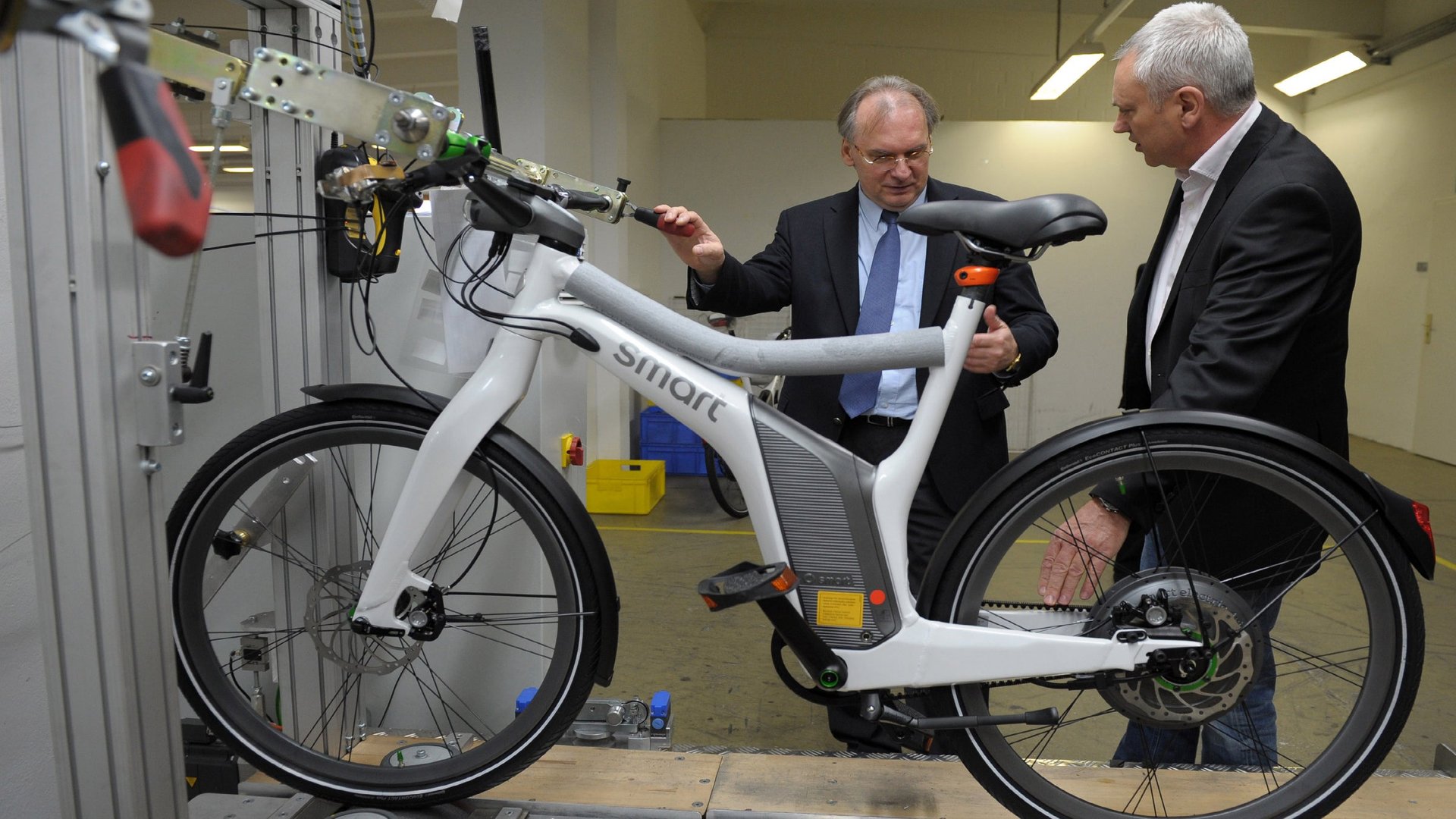Carmakers are rolling the dice on e-bikes in the US, fearing the death of the car
The notion of an electronic bicycle craze isn’t exactly new in bike-friendly parts of the world. But despite the many obstacles that have surfaced about taking e-biking mainstream in the US, a slew of carmakers appear determined to churn out newfangled high-concept e-bikes in the hopes of jolting demand.


The notion of an electronic bicycle craze isn’t exactly new in bike-friendly parts of the world. But despite the many obstacles that have surfaced about taking e-biking mainstream in the US, a slew of carmakers appear determined to churn out newfangled high-concept e-bikes in the hopes of jolting demand.
Take BMW’s latest offering. Its new Cruise e-Bike 2014, which weighs less than 50 pounds, comes equipped with a turbo function and will cost nearly $4,000. For now, the company is hedging its bets by restricting its initial sales to Germany, where e-bikes are gaining steam. Ford, on the other hand, is blazing straight into the US market with its new Pedego e-bike, which it intends to sell across the country starting in 2014. Audi released a prototype last year that could eventually reach the US, and Mercedes Benz launched its Smart e-bike in Canada in the spring of 2012.
The tide has already turned in certain markets. As we recently pointed out, e-bikes are now wildly popular in China, where over 200 million are now being driven, and in Brazil, where sales are growing by over 200%. They’re gaining ground in Europe, too. And with good reason: They’re cheaper than mass transit (prices start at only $1,000), faster than rush hour traffic (they can reach 30 mph); just about anyone can use them (you don’t have to be fit to ride a motorized bike); and the fuel cost is essentially zero (since they’re electrically-powered). And yet, in the US, where concerns about regulations and how to control their use are on high, e-bikes aren’t flying off the shelves. In New York City, for example, they aren’t even allowed. So why are carmakers so eager to roll more of them out?
Auto companies aren’t just waiting for the rules to change in big American cities; they’re also preparing for the death of the car. With city dwellers—especially young city dwellers—driving less and less these days, companies like Ford and GM are being forced to ponder life after the automobile, even for car-obsessed markets like the US. “This could mean leasing cars for short periods or making electric bikes rather than just building and selling cars,” the Financial Times posited earlier this month.
Indeed, money appears to be ripe for the taking in the growing e-bike industry, including in the US where they’re still scarcely used. Earlier this week, Boston-based design firm Superpedestrian announced that it had raised over $2 million to develop the “Copenhagen Wheel,” a smartphone-controlled wheel that turns regular bikes into hybrid e-bikes. Expect bigger, badder, auto-inspired bike innovations to continue, even if you’ve yet to spot an e-bike on the road.